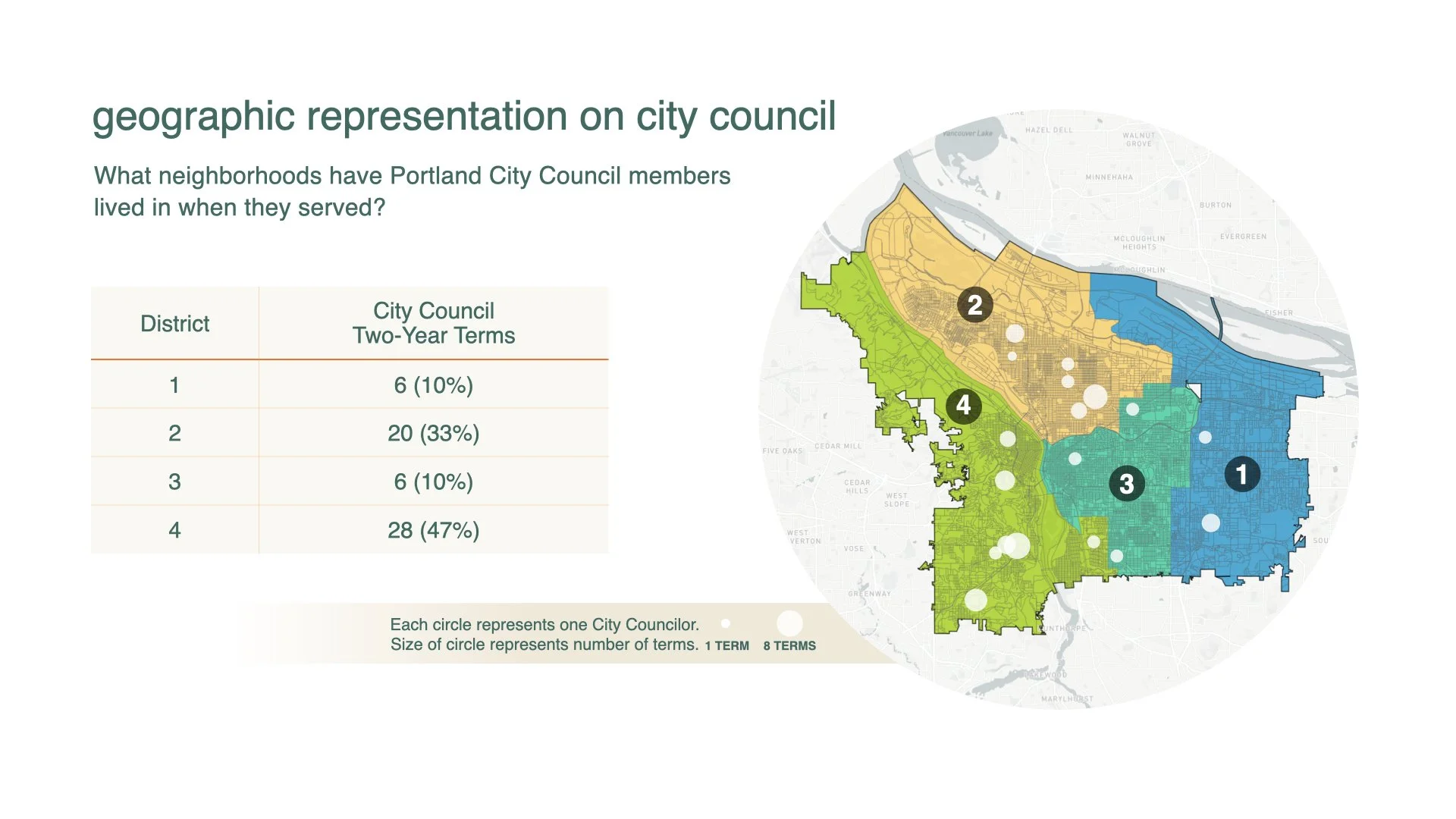City Council Characteristics
Does Portland’s City Council reflect the values and priorities for most Portland voters? In a May 2024 survey conducted by Oregon Values and Belief Center, 42% of Portlanders say there is no one on City Council who represents their interests, and more than half of Portland residents say that some characteristics are “not present” on the current City Council:
A vision for how to make Portland a safe, affordable and enjoyable place to live
Willingness to work on the “boring issues” like potholes
Accountability to a broad range of Portlanders
Ability to work through conflict in a way that leads to productive problem solving
About this data: May 17- June 18th, 2024, Oregon Values and Beliefs Center “Portland Your City, Your Choice Survey,” of 1,114 Portland residents.
Download annotated survey and cross tab data
getting into the data and trends
background
From May 17- June 18th, 2024, the Oregon Values and Beliefs Center (OVBC) designed and administered the OVBC 2024 Portland Your City, Your Choice Survey to discover insights about Portlanders values and beliefs related to charter changes, civic life, and quality of life.
It is OVBC's hope that this research will assist individuals and organizations in Portland with planning, policymaking, and communications and serve as a baseline for future research to monitor changes in Portlander's values and beliefs about their city.
about the data
Period of Time: May/June 2024
Sources: The online survey consisted of 1,140 Portland residents ages 18+ and took approximately 15 minutes to complete. Respondents were contacted by using professionally maintained online panels, community partner outreach, and public engagement through local media and social media. In gathering responses, a variety of quality control measures were employed, including questionnaire pre-testing, validation, and real- time monitoring of responses. To ensure a representative sample, demographic quotas were set per US Census information, and the data was statistically weighted by area of the city, gender, age, race/ethnicity, political party, and education.
Types of Data: Survey Data
Geography: City of Portland, OR
Statement of Limitations: Based on a 95% confidence interval, this survey's margin of error for the full sample is +2.30%. Due to rounding or multiple-answer questions, response percentages may not add up to 100%.
race data in this survey
OVBC surveys currently use aggregated data to analyze the opinions of BIPOC residents in comparison to the opinions of residents who identify as white and not another race. BIPOC residents are not a homogeneous population, instead they represent a wide diversity of races and ethnicities. The findings included in this memo should not be construed such that all people of color are believed to share the same opinions. Disaggregated race data wil be provided when sample sizes permit reliability.
what the data shows
-
Overall, 42% of Portlanders say no one on City Council represents them and their interests. But some Portlanders are more likely to feel a lack of representation than others: Those without a college education (51%), those living in District 1 (48%), and those earning less than $75,000 annually (42-46%, depending on the income bracket).
Explore Reflective Representation data for City Council, 2001-2023





